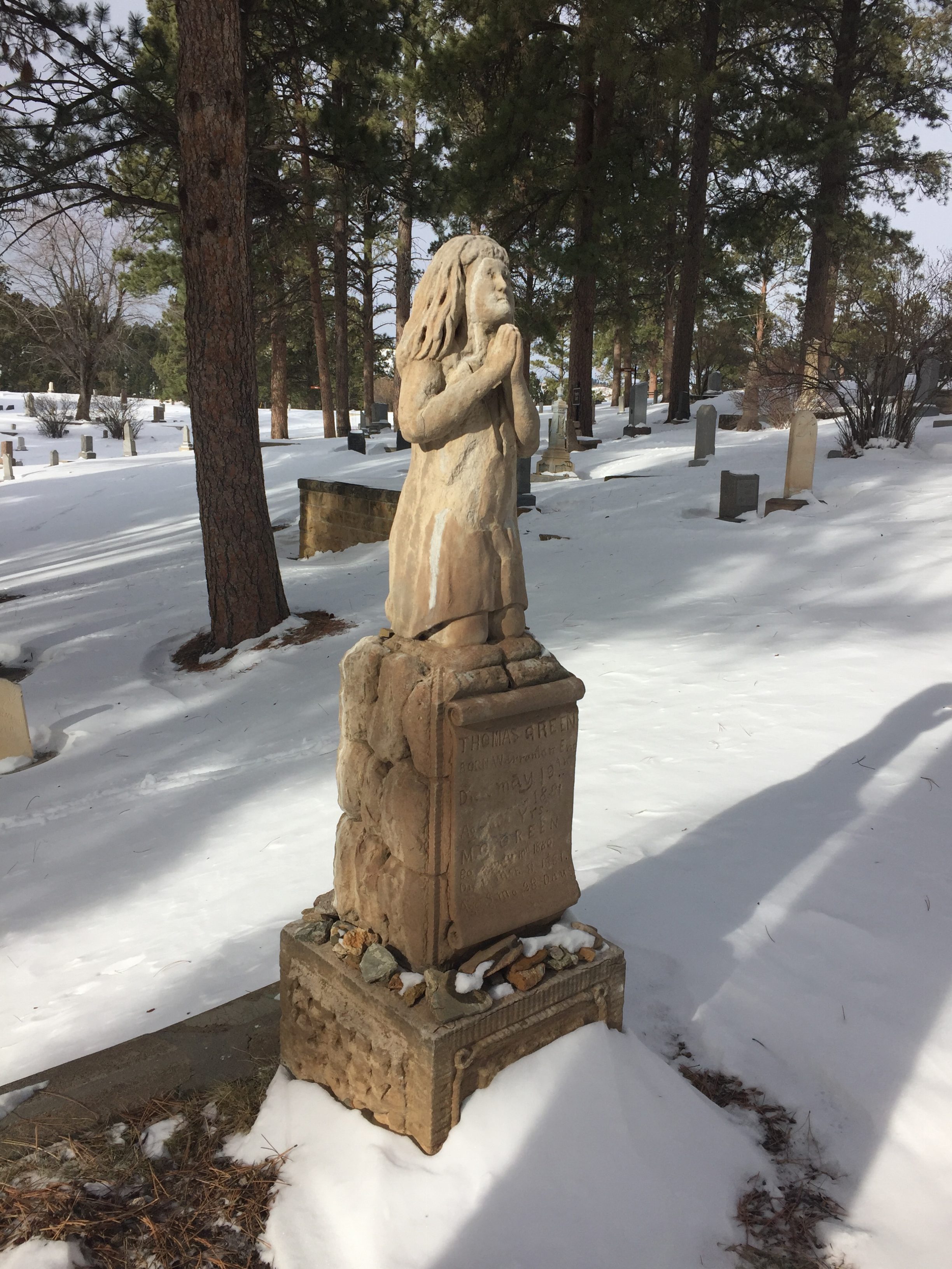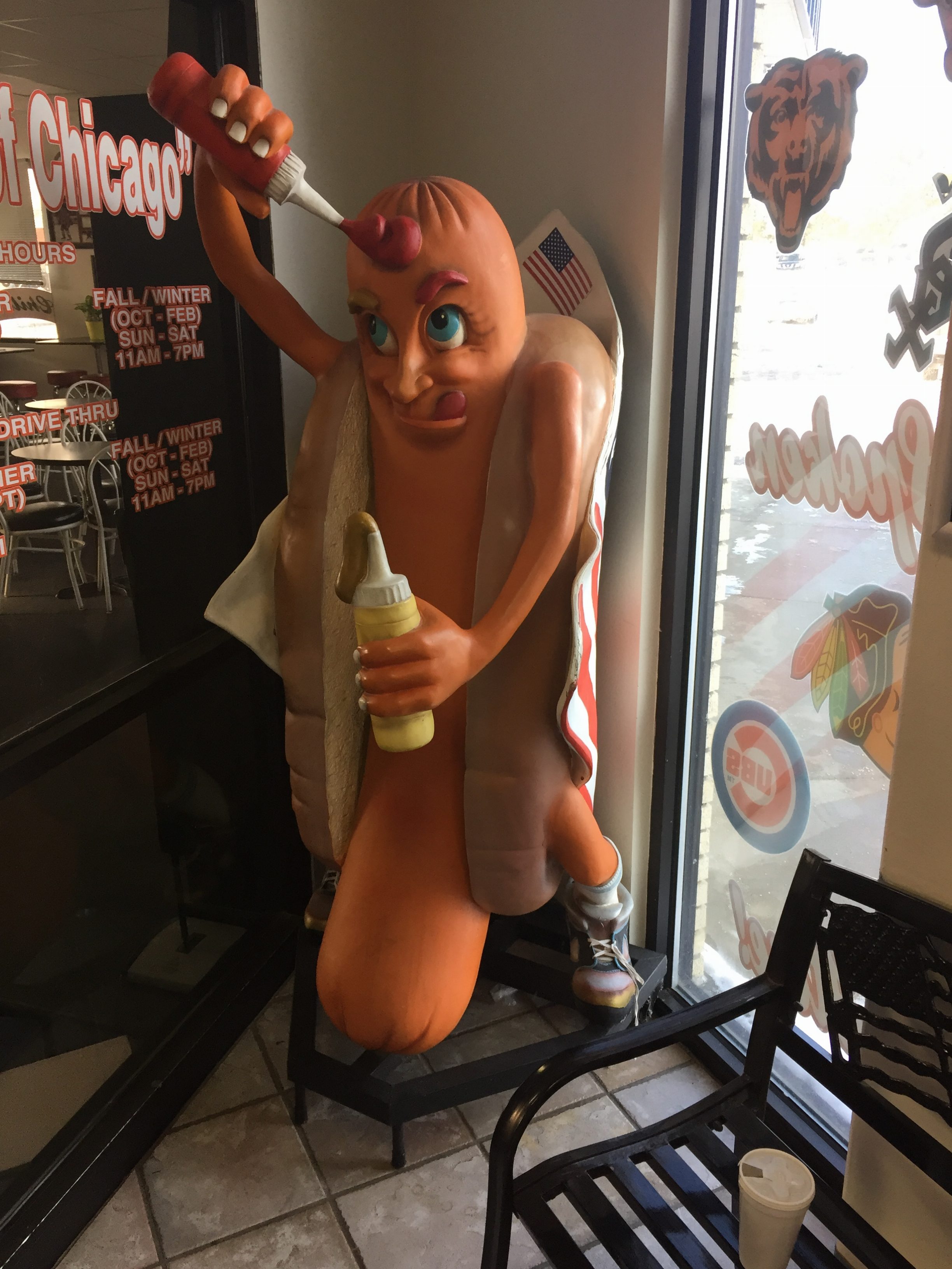Date
“You’ve lost another tooth,” I tell him, though I’m sure he must know. It doesn’t surprise me when his answer takes the form of a short, dismissive nod. He nods again after a moment, a nod to himself, as though confirming some internal dialogue.
I wonder what that must sound like.
The stranger’s shadow is long and varied under the streetlights. People seem to unconsciously avoid its perimeter, mistaking it for a murky puddle in their peripheries. I prod it with the toe of my shoe when he isn’t looking and, though there is nothing underneath but pavement, the stranger turns quickly and shudders.
“What are you doing?” he asks.
“Waiting for you to decide which way to go.”
“How do you usually do this?”
“I just walk in and wait until something happens.”
He sighs and takes another step toward the cordoned-off street beyond which lies several blocks of happy, smiling people. Before us is a sign: “Welcome to the Springfield Night Market!”
‘Yes, the people seem to be happy and they seem to be smiling but, reader, do not believe that either is truly the case. The ‘Springfield Night Market’ is a place of debauchery, comparable only, perhaps, to the infamous ‘Uptown Festival of Greek Cuisine’ before it burned to the ground and was discontinued.’
“Was that you?” I ask the stranger, pointing to the passage.
“Of course not,” he says, his shadow wavering guiltily, “That must have happened before the book was published.”
As ever, I’m not entirely sure that’s the case.
‘To fully grasp the corruption at the heart of the ‘Springfield Night Market,’ one must step back and consider the very convention of the ‘night market’ itself. No mere place of commerce, a night market is the vampire’s teeth of American consumerism, emerging from the shadows to pierce the busy veins of a city and to drain them endlessly. Fledgling night markets gorge to bursting and fail but the ‘Springfield Night Market’ is ancient and clever.’
“Do you also think that the author’s militant anti-capitalist rants sometimes make it difficult to figure out when a place is actually dangerous?”
“Yes,” he says, “Just skip down to the end.”
‘The simple answer, reader, is that you must be rude to leave the market. You must ignore the merchants as they debase themselves and you must walk in a determined line until the noise of the crowd dims and you find yourself alone once more. Despite threats to the contrary, nothing will follow you past the confines of the market unless you make the mistake of purchasing it.’
“What the hell is that?” the stranger asks, returning from an extended reconnoiter of the market.
“An elephant ear,” I tell him, “I thought we could share.”
“The book says not to buy anything!”
“The book says not to buy anything you don’t want following you,” I shrug, “Do you think this is a haunted elephant ear? Do you think a piece of bread can be cursed?”
“I don’t want any,” he says, which suits me well enough.
The thing cost eight dollars.
The stranger has never asked, in any direct way, where I received my copy of ‘Autumn by the Wayside’ and his not-asking has kept me quiet on the subject as well. His copy, I’ve noticed, is further along in life than mine. So broken is the binding that, sat on a table, his copy of ‘Shitholes’ forms a near-perfect circle of splayed pages, no longer able to contain itself. Pieces are missing, like the page he gave me with his number. He seems to know, without looking, which parts of the book are no longer necessary. He loses them like teeth.
We enter together.
The cramped aisles of the night market press the stranger and I close. We lose and re-find each other between hopeful artists and honey vendors. He picks at the elephant ear disapprovingly while people trip over his shadow. I get the feeling he could disappear if he wanted to, disappear like he did in the cave.
Which means he doesn’t want to, not today.
“Sir,” someone whispers, “Sir!”
The stranger has gone.
“Sir!” a man says, indicating me to his table where he puts on a louder voice, “I’ve got something you might be interested in.”
The man is selling plants, or selling intricate plant holders that seem, incidentally to be occupied by succulents. ‘Tom’s Plants,’ the sign says, ‘You can’t kill’em!’
“That’s a bold statement,” I tell him.
“Is it?” he asks.
“I mean, doesn’t that instigate people? Won’t people try to kill your plants to prove you wrong?”
“They can try,” he says, “But they can’t.”
“You’re saying that a person could not kill one of your plants, even if they tried.”
“That’s right,” he says, “It’s more than right, it’s guaranteed!”
“Guaranteed for life?”
“We don’t offer exchanges on plants that die of natural causes. Old age, for example, is not covered. Would you like a demonstration?”
“A demonstration of what?”
Tom pulls a hammer from under the table and swiftly crushes a succulent, artsy pot and all, with several deafening blows. Passerbys watch, curiously, but scatter when he’s finished, afraid that loitering might accidentally convey interest in buying. By the time Tom is finished, the succulent is a jelly and the pot is dust.
“That seems dead, to me,” I tell him.
“Not yet,” he says, “But probably soon. In this instance, given this level of damage, we would likely offer you a refund. As I said, we have a guarantee.”
“So the “can’t kill’em” is mainly a marketing gimmick?”
“Mainly,” he says with a bizarre emphasis.
I look around for the stranger, but he has not returned.
“Mainly but not entirely?” I ask.
“That’s right.”
“Is there a specific plant…”
“Our guarantee does not cover potting supplies,” he says slyly, “And it doesn’t cover the pots themselves but we do have a peculiar specimen of fern that might suit a man such as yourself. A traveler, by the looks of it…”
He seems to want something from me, then, and his eyes narrow at my hesitation.
“Do you know what this is?” he asks, smoothing the dirt and succulent powder flat. He draws, with his thumb, two small circles, one within the other.
“Circles,” I say.
“No, wait,” he says, wiping over them and starting again.
This time the outer circle is an oval, pointed at the ends.
“An… eye?” I ask.
“The all-seeing eye!” he says, expectant once again.
I nod my head appreciatively and wait for more.
“The all-seeing eye,” he says.
“Yep,” I agree.
“Do you know what this is?”
“The.. all-seeing eye?” I ask, but he gestures for extrapolation. “The eye of providence? God watching over mankind? Conspiracy? Freemasons?”
Tom’s frowning now, his own eyes narrow.
“What is this?” he asks, wiping away the eye and drawing a short squiggle. He saves me from another embarrassing assortment of answers by mimicking a walking person with his fingers.
“A path?”
“And two people, walking the same path and in the same direction and at the same speed- will they meet?”
“No.”
“But,” he says, “Upon reaching the end would they have seen the same thing?”
“Um…” I say and Tom nods encouragingly, “Mostly?”
“Mostly!” he says, “Yes, mostly! A thousand people walking a path will meet at the end with a single, blurry vision. A hundred thousand people and the vision will clarify. The path becomes easier to follow, it is worn into the ground. The vision becomes clearer, it is held aloft by those who seek it out. That is the all-seeing eye and its rays, a multitude of visions becoming one.”
“Is this how you sell plants?” I ask.
“It is how I sell a single, specific plant,” he smiles and, donning gloves, he brings a small glass jar up from under the table.
The plant inside presses desperately against the glass. A single frond has worked its way under the lid and it points at me like an accusing finger.
“A fairy fern?” I ask.
“A regional name. I grew up calling it ‘crawl grass.’ In the south it’s… ‘the devil’s such and such,’ I don’t know. Everything belongs to the devil in the south.”
“How did you know I would recognize it?”
“Because we are the two people on the same path. I have slowed and you have caught up to me. We are the two people here that share the vision.”
“Actually,” I say, pulling out my wallet to pay him, “There’s another guy you probably shouldn’t let…”
A massive plume of fire rises over the ‘Springfield Night Market.’ People scream, plastic tents shrivel and burn. Jars of honey froth over and burst. Tom stands aghast, too aghast to hand me change. I turn to leave and trip over the stranger’s shadow, tumbling into the pavement. He’s reappeared behind me and he holds out a hand from above.
I reach out to take it. “No,” he says, “Give me the stupid fern.”
“No!” I tell him, “It’s harmless.”
I wince as the rogue frond digs into my palm.
“All right, fine!” he hisses through the gaps in his mouth, “Let’s just go.”
I take his hand and he pulls me from the ground. We start to weave through the crowd, fingers intertwined, and as the stranger leads me away I hear Tom shouting. It’s difficult, at first, to make out, but what I hear is this:
“He’s running!” Tom shouts, “He’s running backwards on the path!”
-traveler





